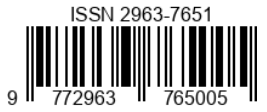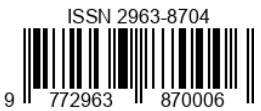Pandangan Mahasiswa Mahasiswi IAIN Terhadap Negara Hukum Dan Penegakan Hukum Di Indonesia
DOI:
https://doi.org/10.55606/jhpis.v3i3.3855Keywords:
Rule of law, law enforcement, legal awareness, legal injusticeAbstract
Since its independence, Indonesia has declared itself a state governed by law, as stated in the Preamble of the 1945 Constitution of the Republic of Indonesia. This noble ideal asserts that Indonesia is a state based on the rule of law, not merely power. However, the journey to realizing this ideal is fraught with challenges. Law enforcement in Indonesia faces serious issues such as weak rule of law, lack of accountability among law enforcers, low legal awareness among the public, and an inefficient judicial system. These problems lead to negative public perceptions of law enforcement in Indonesia. The public often sees law enforcement as unjust, with laws frequently "weak on the powerful and harsh on the powerless," where those in power often escape legal consequences while the underprivileged are easily punished. Additionally, the professionalism and integrity of law enforcement officials are often questioned, further tarnishing the image of law enforcement. This negative perception has severe implications for the stability and security of the nation, fostering public distrust that can lead to criminal and anarchic actions. addressing these issues requires continuous and comprehensive efforts involving all elements of the nation. The government needs to enhance transparency and accountability in law enforcement processes and enforce laws fairly and indiscriminately. The public also needs to actively supervise and criticize the performance of law enforcers. Surveys indicate that the majority of Indonesians have high hopes for the enforcement of laws in Indonesia, despite existing doubts and dissatisfaction with the slow and convoluted judicial process and the professionalism of law enforcers. The majority of respondents also acknowledge that corruption remains a serious issue requiring primary attention.
Downloads
References
Abdus Salam. (2015). Pengaruh Politik Dinasti. Jurnal Pemikiran Islam, 16(2).
Anggraeni, D., & Damayanti, N. (2022). Penegakan Hukum Yang Berkeadilan Di Indonesia. Indigenous Knowledge, 1(2), 49–58. https://www.kompasiana.com/naniyayin/628c50ecbb44866a5861f822/penegakan-hukum-yang-berkeadilan-di-indonesia.
Bagus, M. (2022). Ragam Dan Perkembangan Penegakan Hukum Di Indonesia Pasca Reformasi. Al-Jinayah Jurnal Hukum Pidana Islam, 8(2), 141–164. https://doi.org/10.15642/aj.2022.8.2.141-164.
Henry Arianto. (2010). Hukum Responsif Dan Penegakan Hukum Di Indonesia. Lex Jurnalica, 7(April), 115–123.
Hibnu. (2008). Paradigma Penegakkan Hukum Indonesia Dalam Era Global. Jurnal Hukum Pro Justitia.
Iqsandri, R. (2022). Pengaruh Politik Terhadap Proses Penegakan Hukum Di Indonesia. Criminology and Justice, 2(1), 1–3.
Novitasari, N., & Rochaeti, N. (2021). Proses Penegakan Hukum Terhadap Tindak Pidana Penyalahgunaan Narkotika Yang Dilakukan Oleh Anak. Jurnal Pembangunan Hukum Indonesia, 3(1), 96–108. https://doi.org/10.14710/jphi.v3i1.96-108.
Puji Kurniawan. (2018). Pengaruh Politik Terhadap Hukum. Al-Maqasid: Jurnal Ilmu Kesyariahan Dan Keperdataan, 4(No. 1), hlm.30.
Suharti, T. (2004). Proses Penegakan Disiplin. NORMA, 1(1). https://doi.org/https://web.iaiglobal.or.id/Keanggotaan-IAI/Proses Penegakan Disiplin.
Sukadi, I. (2011). Matinya Hukum Dalam Proses Penegakan Hukum Di Indonesia (The Powerless of Law in the Process of Law Enforcement in Indonesia). Risalah Hukum, 7(1), 39–53. https://e-journal.fh.unmul.ac.id/index.php/risalah/article/view/171.
Andrew Shandy. (2019). Kepercayaan Masyarakat Terhadap Penegakan Hukum Di Indonesia. Ensiklopedia Social Review, 1(3), 307–308. https://jurnal.esiklopediaku.org
Rizal Irvan, A. (2020). Mengurai Permasalahan Peraturan Perundang Undangan di Indonesia. ResPublica: Jurnal Hukum Kebijakan Publik, 4(2), 206–207.
Downloads
Published
How to Cite
Issue
Section
License
Copyright (c) 2024 JURNAL HUKUM, POLITIK DAN ILMU SOSIAL

This work is licensed under a Creative Commons Attribution-ShareAlike 4.0 International License.

















